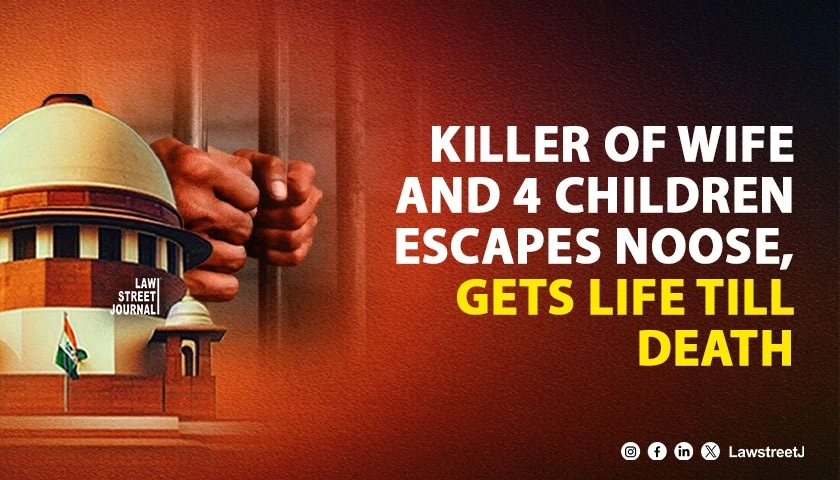NEW DELHI: The Supreme Court has spared noose for a man by commuting the death penalty awarded to him, to life term till the end of his natural life, while affirming his conviction for killing his wife and four children and committing rape upon a daughter in 2008.
Appellant Reji Kumar alias Reji was arrested on July 27, 2008 for allegedly committed the offences over a period of time in 2008 as he suspected fidelity of his wife and himself developed intimate relations with another woman.
The FIR in the case was lodged on July 23, 2008 at PS Pattambi, District Palakkad.
His two daughters were found death in the rented house of the appellant of a Muslim landlord. The bodies of his wife Lissy, the son and third daughter were discovered in the septic tank on July 25, 2008 and from nearby fields.
The Kerala High Court on November 12, 2014 affirmed the conviction and sentence awarded to the appellant by the Sessions Court, Palakkad under Sections 302, 376, 297 and 201 of the Indian Penal Code.
Considering his appeal against the High Court's judgment upholding his conviction and sentence, a bench of Justices Vikram Nath, Sanjay Karol and Sandeep Mehta took note of the facts that he had no prior antecedents maintained good conduct for the past 16-17 years of incarceration, suffered difficulties in mental health and took consistent efforts at being a model prisoner, to hold that the imposition of death penalty would be unjustified.
"He is, therefore, removed from death row," the bench said, relying upon Ramesh A Naika Vs Registrar General, High Court of Karnataka Etc (2025).
However, in view of the severity of the crime, the number of persons killed, that out of five, four were his own children, the bench said, "We are of the view that he does not deserve to be set free and direct that he shall spend the remainder of his days in jail, till his last breath, hoping to do acts of penance to atone for the crimes he has committed and particularly for the fact that he extinguished four bright flames."
The court partly allowed his appeal.
"The primary charges of Sections 302 (four counts) and 376 (one count) IPC, stand proved. We affirm the findings of the courts below. The conviction of the convict-appellant, therefore, remains undisturbed," the court said.
The prosecution claimed that the appellant had killed his wife Lissy and four children -- first daughter (12 years old), son (10 years old), second daughter (9 years old) and third daughter (3 years old).
"We are left to wonder as to how someone who is supposed to feel the utmost love, care and affection for the young lives could have come to committing such a crime - where the lights of these lives have been extinguished in the most brutal of manners," the bench said.
However, upon a cumulative consideration of the testimonies of the prosecution witnesses, the court found the presence of sufficient motive.
"He suspected infidelity on the part of the deceased Lissy and that she had borne a child out of wedlock, along with the fact that there was no physical relation between them," the court said.
The bench also concurred with the findings with regard to last seen theory, and noted the suspicious conduct on the part of the convict-appellant.
It held the evidence suggested a clear plan in the mind of the convict-appellant to end the lives of all members of his immediate family. Such conduct is certainly reeking of guilt, it said.
It noted the prosecution has used scientific and medical evidence to establish the factum of rape being committed on first daughter by the convict-appellant.















